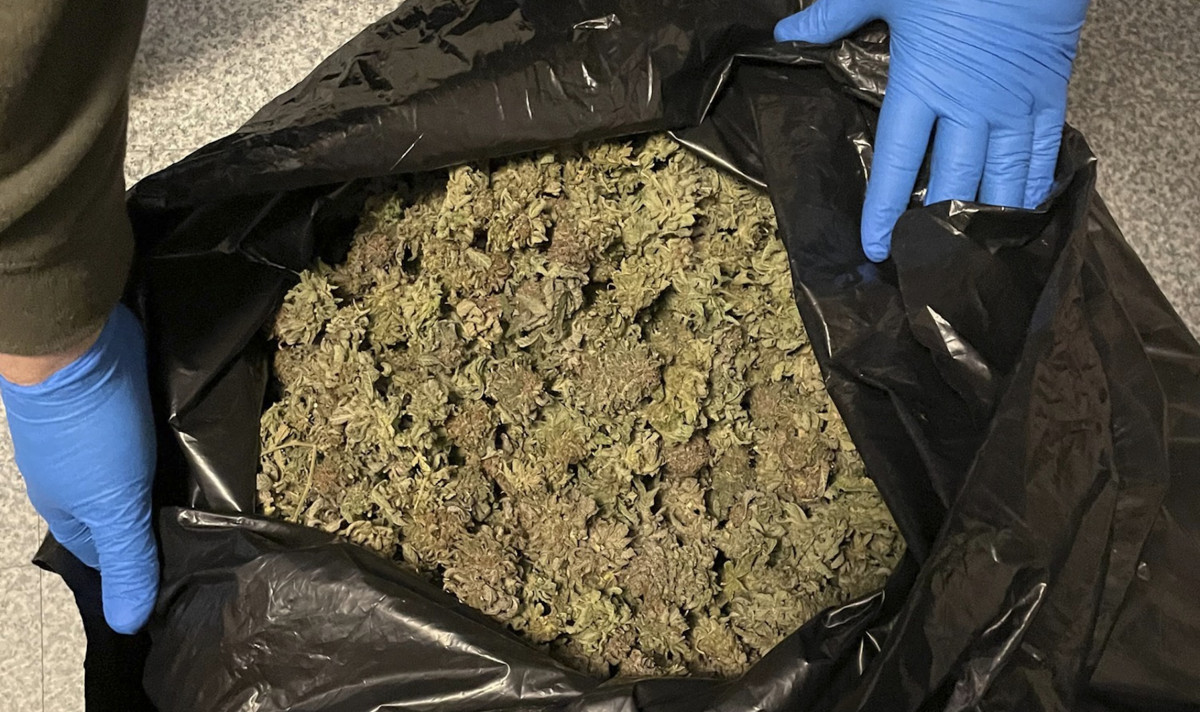

The Biden administration’s top drug enforcement official dodged questions from Democrats and Republicans on Capitol Hill about the federal government’s forthcoming plans to dramatically reclassify marijuana from the most dangerous type of narcotic.
Drug Enforcement Administration Administrator Anne Milgram relatedly refused to field questions from four House Appropriations Committee lawmakers who pushed for answers to who was behind the sudden decision in an election year to move marijuana down the drug classification system, a move that would check off one of President Joe Biden’s campaign promises.
“Under the Controlled Substances Act, there’s a formal rulemaking process for scheduling or rescheduling controlled substances. That process is ongoing. The next step in that process will be a notice of proposed rulemaking, and then an opportunity for public comment,” Milgram testified during a House Appropriations Subcommittee on Commerce, Justice, Science, and Related Agencies hearing on the proposed fiscal 2025 DEA budget. “Because DEA is involved very much in that scheduling process and the DEA administrator is personally involved in it, it would be inappropriate for me to comment on it at this time.”
Plans to reschedule, or change the classification of marijuana as a drug, were first announced in late 2022, though President Joe Biden promised such a change while on the campaign trail in 2020.
Last week, Biden instructed the Department of Health and Human Services to look at the impact of changing marijuana from a Schedule I to a less serious Schedule III drug. Attorney General Merrick Garland “circulated a proposal to reclassify marijuana,” the Justice Department announced.
Schedule I narcotics include those that have a high potential for abuse and have no medical use, including ecstasy and heroin, according to the DEA. Down the ladder, Schedule III drugs include anabolic steroids and Tylenol with codeine.
Marijuana would not be decriminalized or legalized, but such a move would be a grand step forward after decades of the federal government’s war on drugs and ease legal business surrounding the drug.
Rep. Dutch Ruppersberger (D-MD) warned Milgram that not going far enough to deschedule marijuana would create new “conflicts” between state and federal laws.
Fellow Democratic Rep. Matt Cartwright (D-PA) proposed that moving marijuana down the scheduling list could free up DEA agents who work on marijuana enforcement to instead focus on fentanyl, the leading cause of death in Americans between the ages of 18 and 45.
“Do we have agents that are working on marijuana investigations that could be freed up to go to work on cases tied to fentanyl?” Cartwright said.
Milgram declined to comment “because some of this will implicate decisions that become a part of that rulemaking process.”
Biden’s sudden move on reclassifying marijuana comes seven months ahead of the November presidential election and could set him up to appeal to some young voters after failing to wipe the slate of millions of college students with student loan debt.
Rep. Andrew Clyde (R-GA) asked Milgram who was behind the rescheduling effort, the White House or the DEA.
“Unfortunately, I’m not going to be able to get into this conversation right now,” Milgram said.
“You have said multiple times that it would be inappropriate for you to talk about this. Inappropriate or illegal?” Clyde responded.
“Inappropriate, according to our counsel, that I should not be engaged in a conversation about it … since DEA is ultimately the decider of scheduling and rescheduling, and the DEA administrator’s in that role, it would be inappropriate for me to make comments about this process or parts of that process,” Milgram said.
But Clyde refused to accept her withdrawal.
“We’re the United States Congress. You wouldn’t have authority if we didn’t give it to you,” Clyde said. “We make the law; you execute the law. We give you the authority; we’re asking the questions. So I mean, it’s like you’re an extension of us when we create the law. So I’m asking you a question. Where’s it coming from? Is it coming from DEA? Is it coming from the attorney general? Is it coming from the White House [Office of Management and Budget]?”
Again, Milgram declined to comment.
“Marijuana is a very, very dangerous drug,” Clyde retorted. “Not as dangerous as some of the others we’ve talked about here. … We’ve had a significant increase in traffic accidents that we have seen that sent people to emergency rooms … simply because they have been partaking of marijuana.”
Rep. Robert Aderholt (R-AL) noted a 2023 study by the National Institute of Health that concluded the number of cannabinoid hyperemesis syndrome, where a marijuana user may become violently ill.
“This same study that NIH referenced did numerous studies establishing a connection between marijuana use and elevated risk of psychotic conditions, including psychosis, depression, anxiety, schizophrenia, and substance use disorder,” Aderholt said. “The United States is in the midst of a mental health crisis, and with the adverse effects that I just mentioned, such as psychosis, depression, anxiety, schizophrenia, or substance abuse disorder, my concern is rescheduling marijuana would make the crisis worse.”
Last December, Biden pardoned all those arrested, prosecuted, or convicted of federal marijuana use charges, following through on his 2020 campaign promise to expunge cannabis use offenses.
CLICK HERE TO READ MORE FROM THE WASHINGTON EXAMINER
The White House’s hope in taking such broad action was to make it easier for people with criminal records to obtain work and housing as a result of clearing their records of the felony offense.
Numerous states have decriminalized or legalized medical marijuana and marijuana.